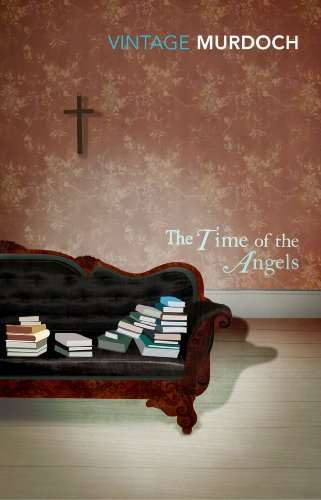Carel is rector of a City church in ruins, destroyed during the war. In the rectory live his daughter, Muriel, his beautiful invalid ward, Elizabeth, and their West Indian servant, Patti. Here too are Eugene, a Russian emigre, and his delinquent son, Leo. Carel's brother, Marcus, co-guardian with him of Elizabeth, tries to make contact with Carel but is constantly rebuffed. These seven characters go through a dance of attraction and repulsion, misunderstanding and revelation, the centre of which is the enigmatic Carel himself - a priest who believes that God is dead, and this is the time of the angels.
If you are seeking something serene or comforting to read, steer clear of . She will take you into a philosophical quagmire and bring you, breathless from the struggle, out the other side. In , Carel Fisher is a priest who does not believe in the existence of God. He lives in a rectory that has no church, with his daughter and niece; a black woman, Pattie, who is his housekeeper and his sometime mistress; a Russian custodian, Eugene, who lives in the basement room with his adult son, Leo, a pathological liar. Only Pattie and Eugene are even remotely likeable, and even they are doomed by the godlessness around them.
One of Iris Murdochs strengths is the sense of place she gives us. I could feel the deserted air of the rectory, surrounded by the ruins of the church not rebuilt from the bombings during the war; the oppressiveness of the fog that lingers and constantly obstructs the view of the river from the six people trapped inside this crumbling structure, preventing anyone from seeing any avenue of escape; and the closeness of the basement room with the ancient boiler, where Eugene is isolated with the icon he has saved from his past and his memories of another, somewhat better, world. Murdoch does this, so often, with few words, but vivid imagery.But, what buzzes at the heart of Murdochs writing, is her eternal debate about the nature of God and man, and whether morality exists if God does not.
I found myself thinking of Graham Greene. Like Greene, Murdoch spares us no quarter when it comes to religion, but she comes to it from such a different place than Greenes Catholicism. She invites us to question ourselves, our God, and our nature. She wonders if there can be good if there is no God, and whether absenting God merely opens the doors and windows of the soul to the evil which is His opposite. If God is dead, must He not have once lived? If God never lived, then isnt His death, like His existence, something we have done? Either way, who is to blame for the absence of good, only ourselves. This book is dense and heavy; its story is dark and reflective. I closed its pages wondering why anyone would want to shut God out when there is so much evil to be let in in His stead.
Another theme I find coursing its way through Murdochs work is the idea of individualism as an isolating factor. Can we ever know another human being? Throughout this novel, the characters misunderstand each other entirely. Often what one is thinking is the direct opposite of what another character believes about them. They mistake motives, actions, feelings. They misread one another, and they fail to see the truth, until confronted with it directly and cruelly. They stumble upon each other, as if they had been groping about in the dark and someone suddenly lit them a lamp. But the light is not the light of God, hope or love; only the harsh light of reality, and it carries revelation without understanding.

